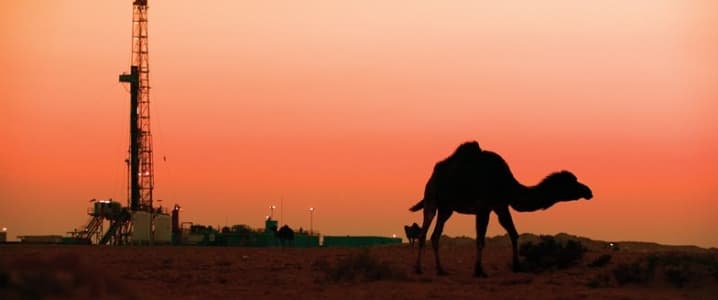A sudden diplomatic crisis broke out in the Persian Gulf on June 5, as a coalition of countries moved to isolate Qatar, the tiny oil and gas-rich emirate. In a joint statement Saudi Arabia, Bahrain, the UAE and Egypt announced they would halt air, land and sea travel to and from Qatar, with Riyadh going so far as to ban Qatari aircraft from using Saudi air space as of June 6.
The Arab countries have suspended diplomatic relations with Qatar and ordered Qatari diplomats to leave. Qatar has also been ejected from the Saudi-led coalition operating in Yemen. Shares on the Qatari exchange tumbled at the news, dropping 8 percent amid fears that the country’s economic growth is slowing down.
The official justification was Qatar’s support for terrorism, including ISIS, but analysts point to regional tensions and growing divisions within the Gulf Cooperation Council (GCC) as the real reasons for the sudden split.
Of all the Gulf States, Qatar has perhaps the closest relationship to Iran, a country which Saudi Arabia considers its chief regional antagonist and which most of the Gulf considers a threat to regional security. Qatar and Iran cooperate somewhat over sharing the massive North Field/South Pars natural gas field, from which Qatar draws most of its natural gas exports and thus its immense wealth.
Then, there is Qatar’s long-in-the-making push for a bigger regional footprint. The tiny country became immensely wealth in the 1990s and early 2000s, and attempted to translate that wealth into soft power through overseas investments, media (including the Al-Jazeera network) and diplomacy. Qatar has for some time considered itself a “mediator” for some of the Middle East’s most enduring disputes. Related: Saudi Arabia’s New Deal With The US: Averting Implosion?
While it hosts a large US air force base and considers its security closely linked to the American presence in the Gulf, Qatar often positions itself as occupying a diplomatic middle-ground. Qatari money has funded anti-regime groups which were active during the Arab Spring and Doha backed the Muslim Brotherhood government in Egypt. Despite its place in the GCC, Qatar has attempted to craft for itself an independent foreign policy. According to one regional expert, the sudden challenge by other Arab nations is an attempt to “bring Qatar to heel.”
Tensions began rising noticeably in the aftermath of US President Donald Trump’s visit to Saudi Arabia in May, which was interpreted by many as a strong endorsement of Saudi regional leadership. Analysts are speculating that Saudi Arabia and the UAE are attempting to bring U.S. thinking in line with their own. There is already noticeable alignment in the outlook of the Trump Administration, which considers Iran to be a major threat, with that of Riyadh and Abu Dhabi.
Shortly after Trump’s visit, Saudi and UAE media began launching verbal attacks on Qatar, including accusations that an alleged phone call from Qatari leader Sheikh Tamim bin Hamad Al Thani to Iranian President Hassan Rouhani was an attempt to strengthen relations between the two countries.
Then there are accusations that Emir Tamim, during a military graduation ceremony on May 23, referred to Iran as “a big power in the stabilization of the region.”
Qatar claims hacker’s broke into the state’s official web sites, posting positive comments about Iran and Israel, which most Arab countries continue to officially oppose. Those present at the May 23 ceremony insist that the Emir made no speech whatsoever. While Doha claimed the comments were fake and were swiftly deleted, their appearance provided a pretext for action by the Saudis and their allies to isolate Qatar. Related: Worst Hurricane Season In A Decade Threatens Gulf Coast Production
It’s unclear what the impact of this move will be. While Qatar is one of the world’s leading exporters of natural gas, its oil output is small and it has already agreed to adhere to the OPEC production cut extension. Markets bounced up a little at the news of trouble in the Gulf, but the change was likely a tremor, not an earthquake.
Qatar has already assured Japan, one of its largest customers, that the diplomatic feud will not affect shipments of Qatari LNG. Qatar supplies the UAE with natural gas through a pipeline, and despite the tensions between the two countries there is little chance the UAE will reject Qatari gas, which is needed to meet electricity demand during the summer months.
However, if tensions between the GCC members continue, it could have an impact on the region’s stability and the security of the Straits of Hormuz, through which thirty percent of the world’s tradeable oil passes each day.
By Gregory Brew for Oilprice.com
More Top Reads From Oilprice.com:
- OPEC’s Next Move: Expanding The Cartel
- How Brazil’s Latest Oil Gamble May Backfire
- Oil Markets On Edge As Arab States Cut Ties With Qatar

















